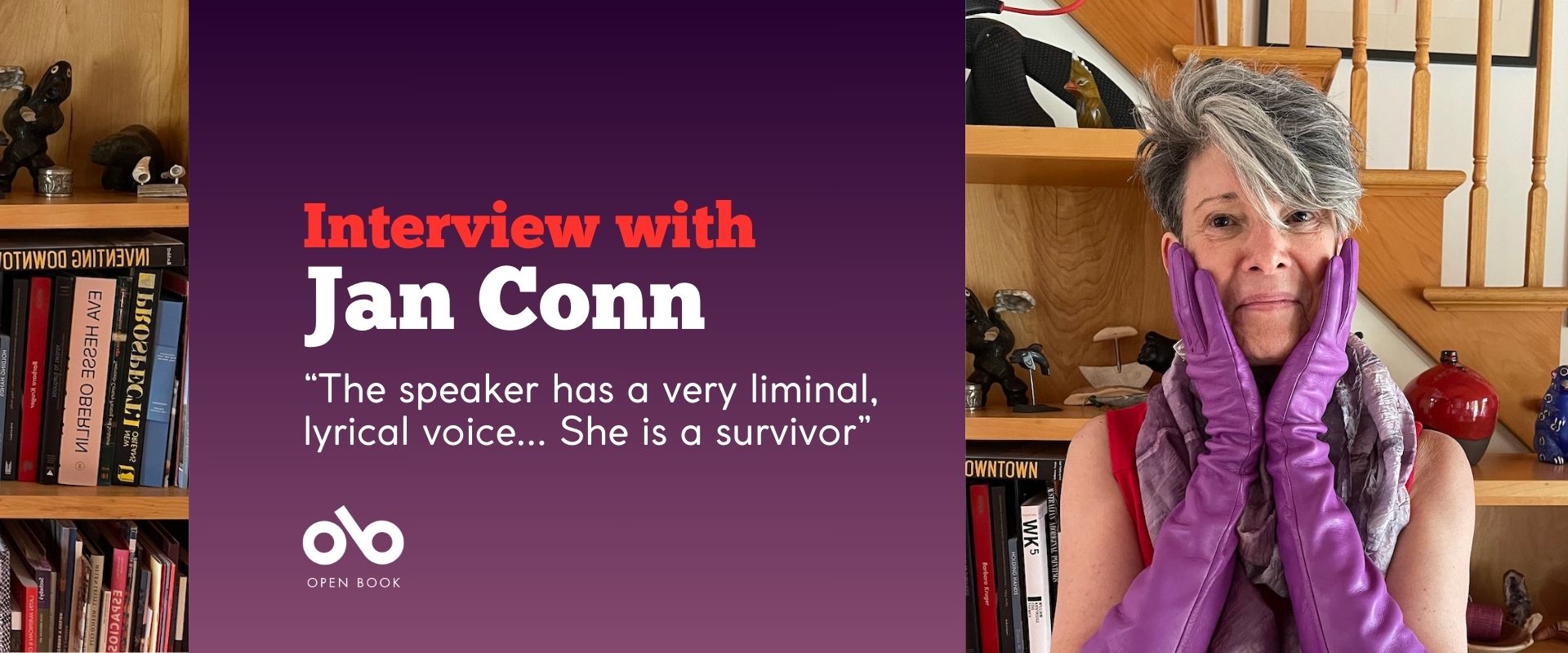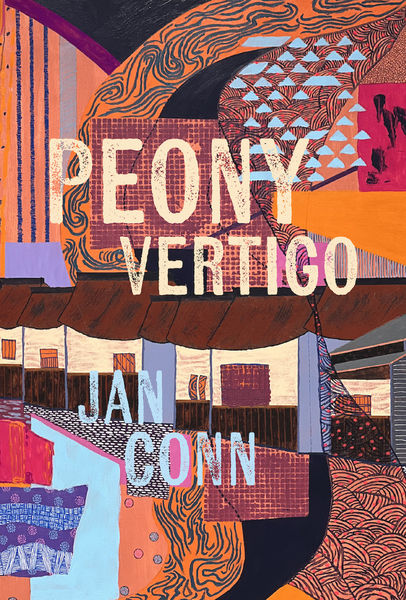Jan Conn's 10th Collection Blends Flowers, Neurons, & More to Celebrate and Cry Out for the Earth
Jan Conn's award-winning brand of poetry, which she has established in her nine previous collections, is absorbing, smart, and constantly curious; a poetry engaged with the world as it is and might be.
Her milestone tenth collection, Peony Vertigo (Brick Books) adds to her impressive canon with an energetic, at times riotous aesthetic, examining nature, science, and the self in conversation. From slides on a microscope to the muscular withers of a horse in prehistory, Conn's images and lyrical storytelling are filled with both joy and tension, and a fierce call to hold sacred the environment that is suffering at human hands.
Poet Erin Robinsong said of the collection, "It’s a strange time to love the world, and Jan Conn’s poems are vivid documents of her trafficks in love for what is beyond repair and beyond compare."
Timely and delightfully wild, Peony Vertigo draws on Conn's background as a Research Scientist and Professor at the New York State Department of Health in Albany, NY and State University of New York at Albany, weaving her scientific and poetic voices in her unique personal blend. We're speaking with her about creating the collection as part of our Line & Lyric series for poets.
She tells us about the pleasure of including a flower in the title given the "ephemeral but...essential" role flowers play in our ecosystem, how her experience as a biologist influences her research process as a poet, and how she views the speaker in these poems, a woman fascinated by "doorways, openings, alleys, rooftops, in-between places in general".
Open Book:
Can you tell us a bit about how you chose your title? If it’s a title of one of the poems, how does that piece fit into the collection? If it’s not a poem title, how does it encapsulate the collection as a whole?
Jan Conn:
This manuscript has had many titles! It was submitted to Brick Books under a different one, and only during about the middle of the editing process, did Peony Vertigo seem to appear one morning after a dream of skimming. I was balanced on a flat stone that was moving rapidly a few centimetres off the ground. It was exhilarating! Amazing landscapes! No peonies in sight, but still when I awoke I wrote down the title. It was my brilliant editor Sonnet L’Abbé who noted that this manuscript has, as one focus, a series of flowers, including peonies, that felt emblematic and necessary. Flowers are, after all, ephemeral but gloriously sensual, remarkably metaphoric, and essential to plants to invite or lure pollinators. The poem “Peonies”, near the beginning of the book, is the deepest, perhaps most personally meaningful, of my poems that focus on flowers.
OB:
Was there any research involved in your writing process for these poems?
JC:
There is research involved in everything I write. Perhaps in part because I am a biologist, and write many papers, which always entail considerable reading of and referencing to prior work. For poems, I like to investigate subjects that draw me in, such as ironweed. We have an ironweed that we planted on our property. I was amazed by its height, the intensity of its purple colour, and its larger-than-life presence. And it’s native to the northeast, another plus, because we try to plant only native species. I also always keep detailed notes whenever I travel, and I usually supplement these with additional reading material of many kinds: culture, history, art, architecture, language, and stories. I find it very stimulating to saturate my consciousness with data about a particular subject and then wait to see how a poem will emerge from this.
OB:
Did you write poems individually and begin assembling this collection from stand-alone pieces, or did you write with a view to putting together a collection from the beginning?
Your CanLit News
Subscribe to Open Book’s newsletter to get local book events, literary content, writing tips, and more in your inbox
JC:
I wrote the initial poems as stand-alones over several years, but once Sonnet and I began working together, I interrupted our process to travel to southern France for two weeks. I wrote a series of notes for poems while there, then about ten new ones as soon as I returned home. Of these, seven were included in Peony Vertigo. These poems are linked, because of temporal and location-specific-ness, as well as emotional palette, and one of the many insightful things Sonnet did was help me arrange all the manuscript poems in an order that allowed each one breathing room, with an intuitive flow from one poem to the next. As happens with an excellent editor, Sonnet saw links that were not obvious to me, giving me several delightful “aha” moments during the “ordering” process.
OB:
Is there an individual, specific speaker in any of these poems (whether yourself or a character)? Tell us a little about the perspective from which the poems are spoken.
JC:
The speaker has a very liminal, lyrical voice, sometimes fragmentary, other times more narrative, and has often felt at the threshold of her body, a landscape, and/or social interaction. She has felt dissociated during her life and does frequently see after-images. She loves doorways, openings, alleys, rooftops, in-between places in general. She is a focused observer, and at times if no notebook is nearby, she either takes photos or else memorizes a few key phrases that serve as prompts when the opportunity to write occurs. She is a survivor.
OB:
What are you working on next?
JC:
From immersing myself in Portuguese landscape, culture, art and language during a private spring “residency” in 2023, I have written a single long poem in many sections that tackles time, art, loneliness, history, memory and love. I have a few additional poems completed but nothing like a manuscript yet, although I fully expect to complete a full-length manuscript of poems in a few years, assuming all goes well.
_________________________________________________________
Peony Vertigo is Jan Conn’s tenth book of poetry. Her poetry has received a CBC Literary Prize, the inaugural P.K. Page Founder’s Award, and in 2016 was nominated for a Pushcart Prize. She is a member of the collaborative writing group Yoko’s Dogs whose publications include, most recently, Caution Tape (Collusion Press, 2021). She works full-time as a Research Scientist and Professor at the New York State Department of Health in Albany, NY and State University of New York at Albany on the vector biology and evolution of Latin American mosquito vectors. She is also a visual artist. She lives in rural western Massachusetts.






